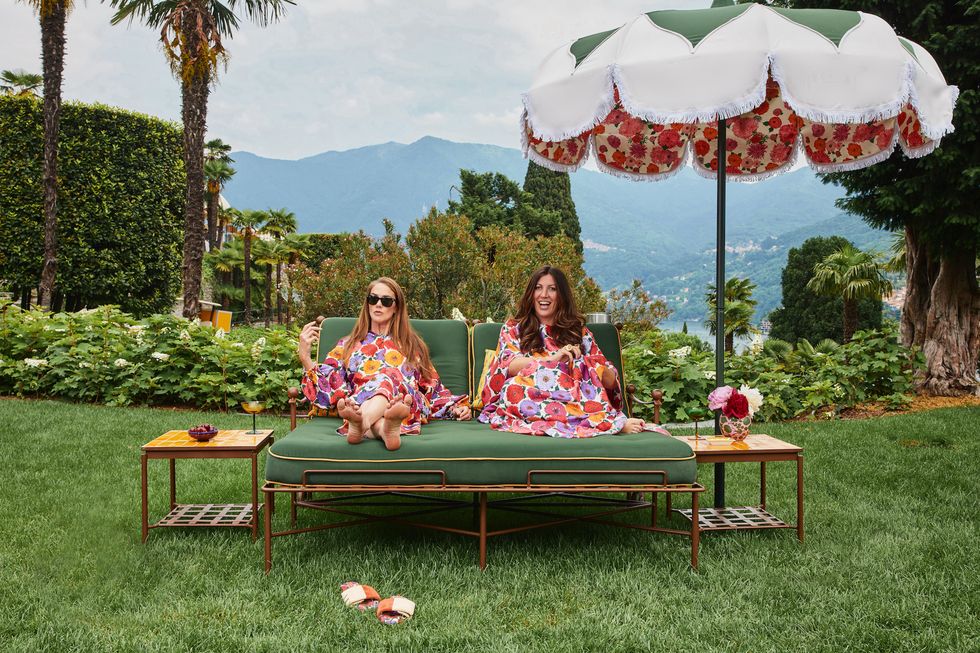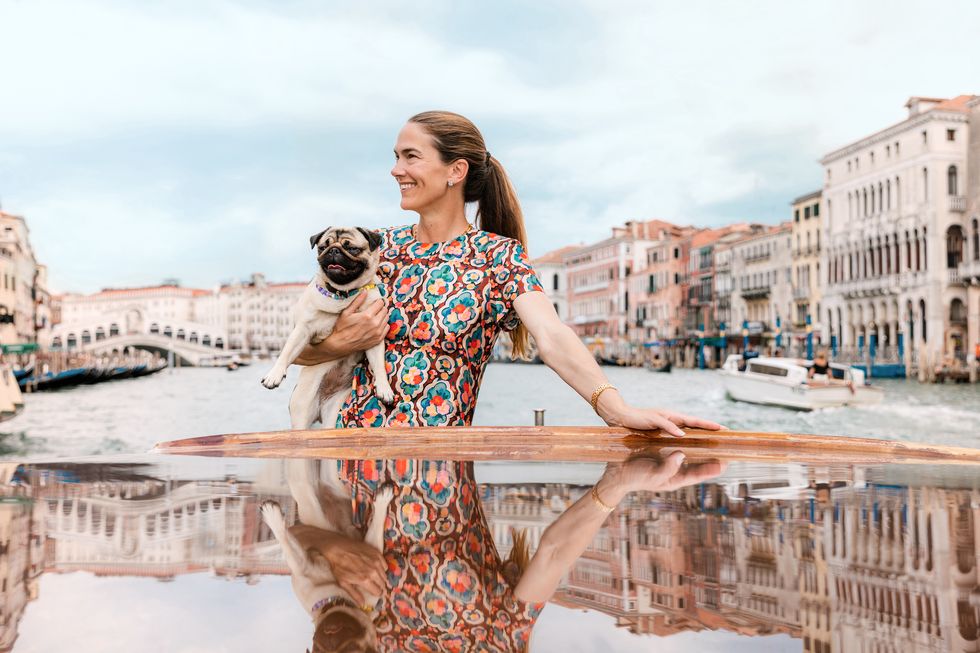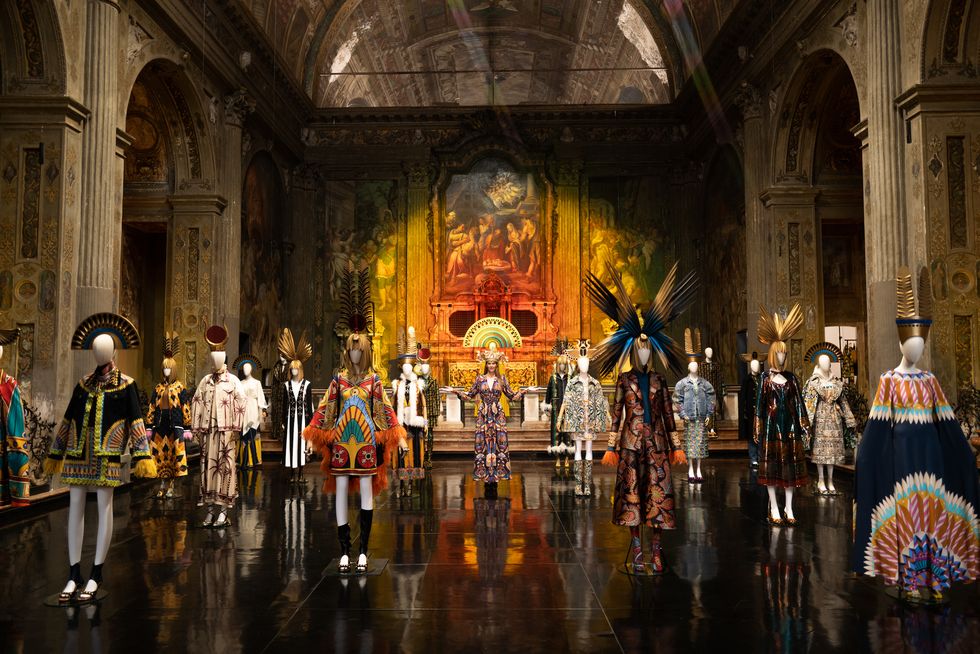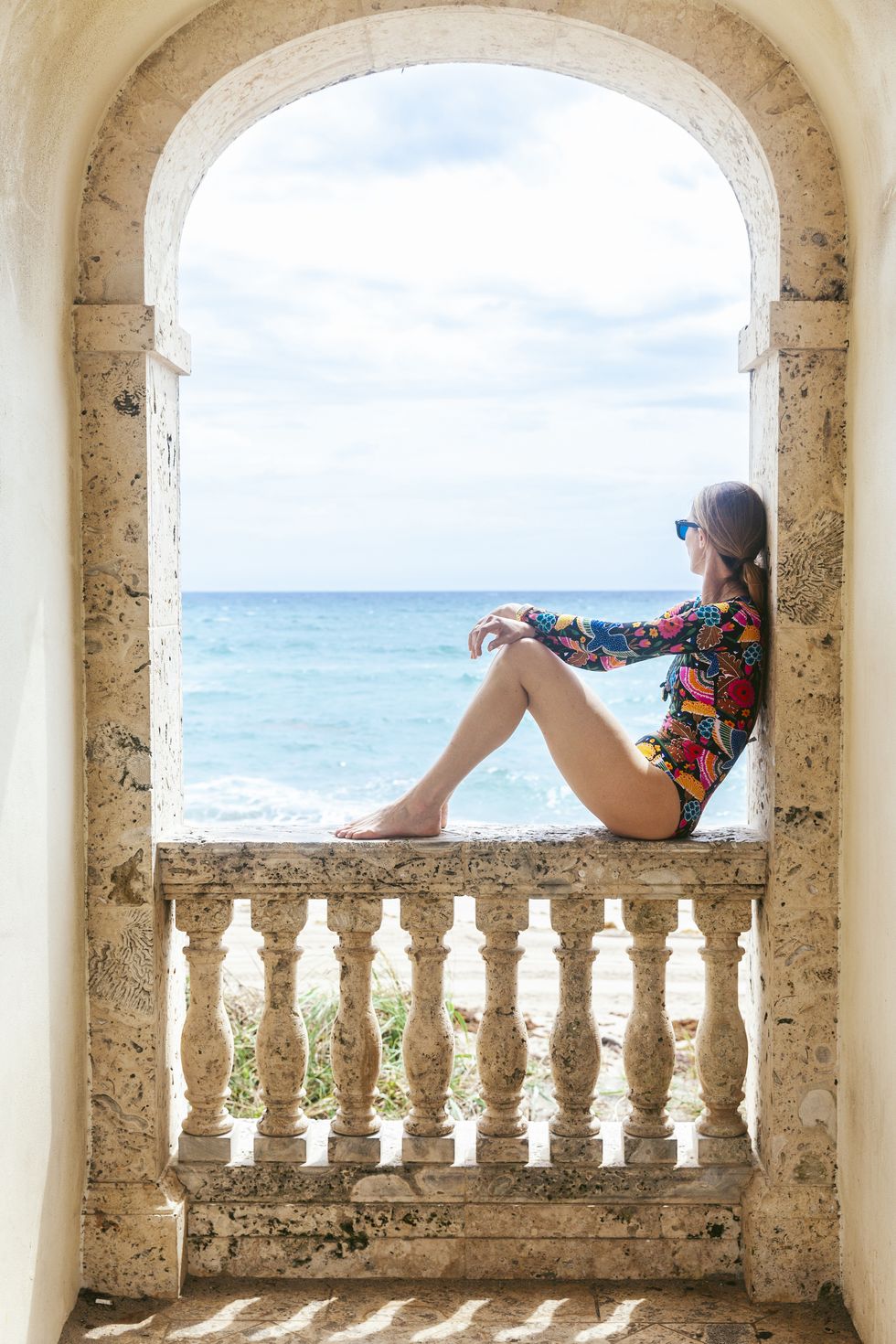La DoubleJ’s J.J. Martin Celebrates Milan With a New Book
Italy, as J.J. Martin would put it, teaches you how to live. The native Californian relocated to Milan after years in New York spent working at Paine Webber and Calvin Klein, on the invitation of her then boyfriend Andrea Ciccoli. She moved into a very foreign environment without a job, but she stayed, becoming a successful fashion journalist and starting her cult favorite line La DoubleJ in 2015. This week, she released Mamma Milano, a guide to her favorite things about her adopted home city, from the fashion to the way it’s allowed her to open herself up to a new kind of spirituality.
La DoubleJ was born out of Martin’s longtime love of vintage. She thought the stylish and successful women she was meeting in Italy could be part of a new venture, and wanted to sell her vintage collection online through a platform that had an editorial feel, so people outside Italy could see the creativity she was witnessing every day. The site was embraced immediately. “Vintage commerce was never sold on a human being at that time, and definitely not on a glamorous woman in her home writing a whole story about it. It was a very new way to show it. I think it really resonated with people, as did the messaging of how to live like an Italian,” Martin explains. In 2017, La DoubleJ began introducing original collections of vintage-inspired patterned pieces. They were instantly popular, particularly among those in the fashion industry, and the company, which Martin runs along with Ciccoli, who was formerly her husband, eventually expanded to offering home goods and textiles.
In Mamma Milano, Martin shares the best of her life and everything she loves about fashion, energy, and Italy. She sees it as being a way to help a reader “birth their own creations.” ELLE.com spoke with Martin about her admittedly rough transition to Italian living, why she thinks Americans could stand to slow down, and how to find beauty everywhere.
What was it like moving to a totally foreign place?
It was very isolating at the beginning and really hard to understand, because Milan is a closed town and it’s a business town, in the sense that most people are here because they’re working and their lives revolve a bit around that. On the weekends, they all take off to their country homes. Those first months and actually even those first years were really tricky for me. Everything was a deep, dark, void of uncertainty. I had never done journalism before. I had never lived in Italy before. I had never spoke any of the Italian language. Everything was new. I think that as human beings, when we’re in that state of total newness, it feels so uncertain….I was in a tailspin of negativity for a really, really long time.
Then, I realized at a certain point that it was really bearing down on me. I was pissed about everything. And at one point, I just surrendered. I was like, “You know what? Italy is bigger than me and there are some nice things. Maybe I should just let go.” This one day, I experienced almost a spiritual revelation that was like, “I’m just going to give up. I’m going to let myself be taken along the rhythms, the customs, the traditions, and I’m not going to change Italy. I don’t need it to change. Maybe if I just accept it, things are going to be different.” So I started embracing it. And when I moved into that state, that energetic state of acceptance, it was amazing how much my eyes opened up to everything fabulous that was here.
How has Italy changed you? How would you describe the culture and style that you love so much?
I call [Milan] “Mamma Milano” because I feel like there is a different energetic principle happening in Italy than there is in America. In America, I was conditioned to this very masculine energy that is very fast, very pointed, directed, ambitious. It’s also kind of controlling, judgmental. You’ve got to go, go, go. There’s a lot of ambition and competition; it’s all about getting things done. Italy is all about the state of being and feeling rather than doing. Of course, things get done here, but the Italians in general are more interested in this energetic principle that is much more feminine in its energy.
In the book, I refer to Italy as this divine mother presence, because I really had to learn how to slow down, how to stop, how to pause, how to learn patience, learn tolerance when things weren’t exactly as I wanted. No, we can’t change this right now. No, the waiter cannot go faster. It is what it is. It’s going to take a little bit longer. In Italy, you’re going to be treated like a family member. It was difficult to crack the door in Milan, but then when I made friendships, these friendships are really deep and an Italian would do anything for a friend. That’s a really beautiful lesson that I had to learn as well.
How do you think La DoubleJ is different than it would’ve been if you had started a line in New York?
I don’t think I would’ve gotten the education that I got. I felt like I got a fashion and design education being a journalist here, whether it was backstage at Missoni or in Donatella Versace’s home or on Diego Della Valle’s yacht. With [the magazine] Wallpaper, I was going into all the architects’ homes and the interior design studios. I got trained here in a really specific way. I think that that’s very Italian—the obsession with quality, the passion that they have for things. What I would’ve had anyway is this obsession with the pattern in the print, because I’ve had that since I was a child. I’m always nuts about that. But then I think being in Italy helped me distill it into a more sophisticated lens.
What would you like Americans to understand about Italy?
Everything is happening to you for a reason. When you’re in Italy, don’t fight it. Go with the flow. I’d also like them to know that getting itchy or impatient and demanding service is not how you’re going to get service. You’re going to get service by being kind and opening your heart to the person in front of you, which is not an American principle. It’s good advice for anywhere. The Italians really don’t jump if you say, “I’m not going to tip you.”







